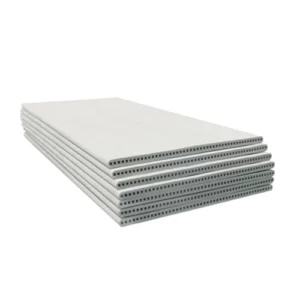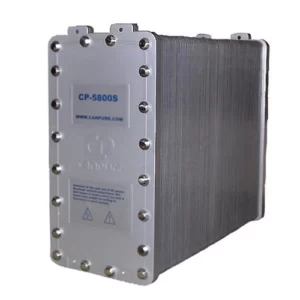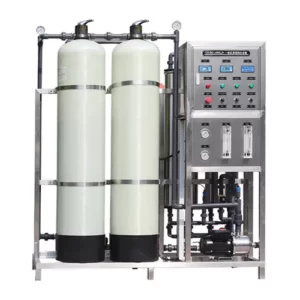The quest for pure water has led to groundbreaking technology in the water treatment industry. Electrodeionization, popularly known as EDI, is a remarkable innovation that has drastically transformed this landscape. It uses electricity, ion exchange membranes, and a direct current (DC) power supply to produce high-purity water. Now, let’s dive deeper into the concept of an EDI module and its role in the water treatment process.

What Is The EDI Module For Water Treatment?
The EDI module employs a series of selective ion exchange membranes sandwiched between two electrodes. Connecting to a direct current power supply creates an electrical field that drives ions toward the electrodes. Positively charged ions or cations are attracted to the cathode, while negatively charged ions or anions are drawn toward the anode. As these ions traverse the ion exchange membranes, they’re replaced by hydrogen ions (H+) and hydroxide ions (OH-). These combine to form water, which is subsequently removed from the system.
How Does EDI Module Work For Water Treatment?
The operation of an EDI module is a relentless cycle. Water is channeled into the module and passes through the ion exchange membranes. The ions are systematically removed as the water courses through these membranes, resulting in pure, uncontaminated water. This purified water is pumped out of the EDI module and ready for use.
Advantages of EDI Module
The EDI process brings forth several impressive benefits:
- Exceptional Purity: Capable of achieving up to 99.9% water purity, EDI is perfect for sectors that necessitate ultrapure water.
- Uninterrupted Operation: As a continuous process, EDI can deliver pure water round-the-clock, catering to applications that require a constant water supply.
- Efficient Maintenance: EDI modules are low-maintenance as they don’t need chemical treatment and have a long lifespan.
- Energy Conservation: EDI is more energy-efficient than other water treatment procedures like reverse osmosis.
The Considerations with EDI
Despite its numerous benefits, the EDI process has a few considerations:
- Cost: Although initially more expensive than other systems, the cost of EDI installations has been reducing and becoming more affordable.
- Scale Build-up: Build-up of scale can potentially decrease module efficiency and lifespan. However, scale inhibitors can be used to prevent this.
- Technical Know-How: Operating and maintaining EDI systems requires some technical expertise.
Wrapping Up
To sum up, electro deionization (EDI) is a dependable and efficient water treatment method that consistently provides high-quality purified water. It offers continuous operation with minimal maintenance and energy consumption. However, like any technology, there are certain factors to consider, such as the initial cost and the need for technical expertise. Despite these considerations, the EDI module remains a popular choice in industries like semiconductor manufacturing, pharmaceuticals, and food and beverage production. This ensures a future with cleaner and purer water for all.
FAQs
Can an EDI module be integrated into existing water treatment systems?
Absolutely! You can easily integrate an EDI module into your current water treatment systems. It works in harmony with other technologies like reverse osmosis (RO), providing an extra layer of purification to ensure the highest level of water purity. This seamless integration allows for a comprehensive purification process, effectively removing dissolved ions and other contaminants present in the feedwater.
What are the advantages of using the EDI module for water treatment?
The EDI module has numerous advantages. It operates continuously without the need for chemical regeneration, resulting in reduced chemical usage and minimal waste production. Additionally, it ensures consistent water quality, high efficiency, and seamless integration into existing water treatment systems.
Where is the EDI module commonly used?
The EDI module finds common usage in various industries such as power generation, electronics manufacturing, pharmaceuticals, and semiconductor production. It proves especially valuable in applications that demand high-purity water.
How does the EDI module compare to other water treatment technologies?
The EDI module provides several advantages over other water treatment technologies. It eliminates the requirement for regeneration chemicals used in traditional ion exchange processes, resulting in reduced operational costs and less environmental impact. Furthermore, it offers a continuous process that is more efficient and reliable, making it a popular choice among various industries.












